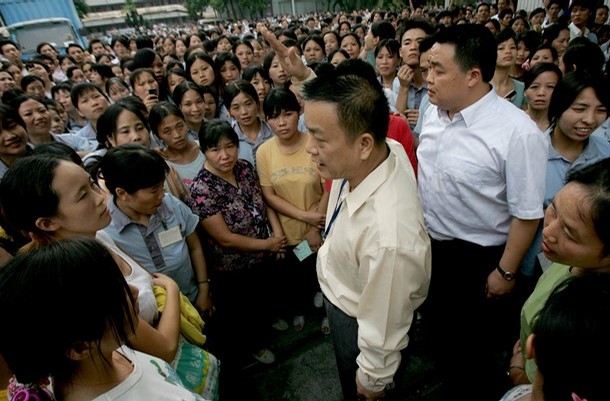Kinglun Ngok and Ching Kwan Lee
Introduction
There could hardly be a better time for publishing Kinglun Ngok’s article on Chinese labor policy and legislation. Three major national labor-related laws were passed in 2007 and went into effect in 2008. These are: the Labor Contract Law, the Employment Promotion Law, and the Labor Dispute Mediation and Arbitration Law. What does this flurry of labor legislations mean? Why now? And perhaps most important: does it matter for China’s workers?
Skeptics would suggest that laws on the books have little practical, let alone political, significance in a country like China where the rule of law is notoriously weak and the judiciary is anything but independent. Yet, scholars who have studied the processes of labor conflict, legal mobilization and official methods of resolution find that laws and regulations do matter, albeit never in entirely predictable ways. First, because Chinese workers cannot organize their own independent unions, and official unions are politically constrained to confront employers, the law becomes a major institutional realm in which workers defend their interests. Chinese labor policy scholars have concluded that this is exactly the reason why the Chinese government, concerned to achieve social stability and reduce the power imbalance between workers and employers, has emphasized legal reform. Second, the law matters because aggrieved workers take the law seriously and invoke specific legal stipulations in pressing employers to yield to their demands related to wages, hours of work, termination compensation and insurance contribution. Third, over the years, the scope of labor legislation has expanded to regulate not just employee-employer relation but also the behavior of local governments. This is evident in the new Employment Promotion Law, which stipulates that local governments have the legal responsibility to guarantee equality in employment and devise measures to eradicate discrimination based on disability and gender. Such laws provide labor activists the ground on which to contest worker rights.

Huayang Printing workers explain grievances to government officials in Shenzhen. The company paid back wages following mediation.
The Labor Contract Law well illustrates the contentious implications of labor legislation. The law explicitly extends protection to workers by requiring written contracts and limiting the use of informal, casual and subcontracted employment. This directly challenges employers, particularly of the more than one hundred million temporary and contract workers, many of them migrants, working without written contracts. When the government announced the draft of the Labor Contract Law in 2006, it solicited a record-setting 200,000 submissions of public opinion. The results included several high-profile objections by all major foreign Chambers of Commerce, which threatened that foreign firms would leave China if the Law was passed. Both workers and employers take the law seriously, as is evident in the rising volume of arbitrated labor disputes and employment litigation, despite political interference by the government in “serious and important” cases.
A strong impetus for the Chinese government to strengthen its legal apparatus to regulate labor relations has come from the tides of labor unrest over the past two decades. Numerous labor protests in both the rustbelt and the sunbelt in China’s northeast and southeast regions have taken place. However, they have largely remained cellular and dispersed, rather than laterally organized or escalating in scale. Their culminated effect is nevertheless unmistakable: they generate a pivotal force pressuring the government to take seriously its own claim of a law-based government so that conflicts are not fought out in the streets but within the system. The new Labor Mediation and Arbitration Law, like the other two new laws, can be understood as the government’s response to these agitations. This particular law provides greater leverage to aggrieved workers seeking to resolve employment conflicts within state parameters, by removing arbitration fees, streamlining the process of arbitration, and extending the time limit for workers to bring their grievances to arbitration.
With these significant developments in labor relations and the law in China, Ngok’s piece could inspire greater interest and debates in this important area. (Ching Kwan Lee)
Ching Kwan Lee is Professor of Sociology, UCLA and author of Against the Law: Labor Protests in China’s Rustbelt and Sunbelt.
Kinglun Ngok, The Changes in Chinese Labor Policy and Labor Legislation in the Context of Market Transition.


